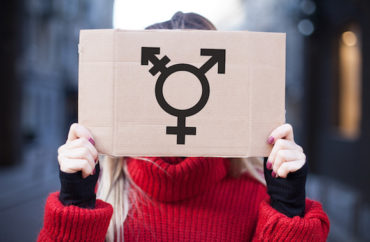
On Wednesday a federal judge heard arguments from the ACLU and Alliance Defending Freedom on several motions related to the lawsuit Hecox v. Little.
The lawsuit filed by the ACLU challenges Idaho’s law that requires high school and college athletes to compete against their biological sex.
The judge is expected to make a ruling by mid-August on the next steps for the lawsuit.
This is a good law that the federal judge should allow to stand — biological men have no right to compete against biological females in athletic competition. And pushing females out of athletic competition would harm them, since athletic competition and female-only teams are beneficial to female students.
The “Fairness in Women’s Sports Act” said “athletic teams or sports designated for females, women, or girls shall not be open to students of the male sex.”
The lawsuit from the ACLU argues that the law was “prompted by a campaign targeting transgender and intersex persons, and can be explained only as impermissible and baseless discrimination.”
However, the law is reasonable and does not discriminate against people who are transgender. In fact, transgender women, who are biological males, are not prevented from athletic competition because they can still compete against men.
The law, however, protects female athletes from unfair competition and protects opportunities for female athletes to compete against one another.
Female athletes do need protection from unfair competition. It’s a scientific fact that men have more muscle mass, more lung capacity and other physical advantages over women. But taking hormones or gender-transition drugs can never fully erase the biological advantages that come from testosterone and being biologically male.
MORE: Arizona lawmaker defends bill to ban transgender women from female sports
It’s why two prominent female athletes, track runner Sonya Richards and tennis player Martina Navratilova, urged Congress to protect female athletes from competition from biological males in an April 2019 op-ed in the Washington Post.
They argued “sex segregation is the only way to achieve equality for girls and women in competitive athletics,” and “females lose” when athletic teams are made co-ed.
That’s not the only problem with allowing biological men who identify as women to compete against women — female-only athletics can often provide a place for female athletes to connect with one another away from men.
The legislation was correct when it stated that sex-specific competition allows “for female athletes to demonstrate their skill, strength, and athletic abilities” while giving them the opportunity to earn college scholarships and gain other “long-term benefits that flow from success in athletic endeavors.”
Right now there are numerous examples of biological males defeating biological females in athletic competitions, but the number of incidents is likely to grow.
For years feminists fought for equal access to athletic opportunities for women, even at the detriment of male sports such as wrestling. Title IX is supposed to protect the athletic opportunities for women — but now the push by groups like the ACLU to allow transgender women to take over women’s sports could undo that progress.
Thankfully, Alliance Defending Freedom is intervening along with the Department of Justice to defend the law along with the state of Idaho.
An Alliance Defending Freedom attorney, who represented the free speech group at Wednesday’s hearing, told The College Fix during a conference call after the hearing that he was “optimistic” that the judge would allow them to intervene on behalf of two Idaho collegiate track runners who lost races to biologically male competitors.
Men have male teams to compete on and against. Women have female teams to compete on and against. Idaho’s law should stand.
MORE: I’m a female student athlete. Protect women’s sports from transgender athletes
IMAGE: Andrii Zastrozhnov / Shutterstock.com
Like The College Fix on Facebook / Follow us on Twitter







Please join the conversation about our stories on Facebook, Twitter, Instagram, Reddit, MeWe, Rumble, Gab, Minds and Gettr.